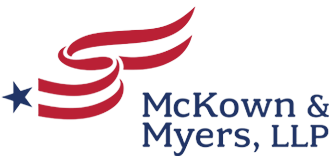 When pursuing a VA disability claim or appeal, veterans are faced with a crucial question: Should you work with a Veterans Service Officer (VSO) or hire a private VA-accredited attorney? Both options serve valuable roles in the VA claims process, but understanding the differences can be the key to a successful outcome.
When pursuing a VA disability claim or appeal, veterans are faced with a crucial question: Should you work with a Veterans Service Officer (VSO) or hire a private VA-accredited attorney? Both options serve valuable roles in the VA claims process, but understanding the differences can be the key to a successful outcome.
What Is a Veterans Service Officer?
A Veterans Service Officer (VSO) is an accredited representative authorized by the VA to help veterans with their claims free of charge. They often work through organizations like the American Legion, Veterans of Foreign Wars (VFW), Disabled American Veterans (DAV), or local and state veterans’ offices. Many VSOs are veterans themselves and can empathize with the challenges of navigating the VA system.
VSOs can assist with filing initial claims, submitting evidence, and representing veterans during VA administrative procedures. For relatively straightforward claims with clear evidence, a VSO may be a helpful and efficient option.
That said, the quality and experience of VSOs can vary widely depending on location and workload. It’s important to remember that although VSOs are accredited, they are not attorneys and are not held to the same legal standards or ethical requirements.
The Role of Private VA Attorneys
VA-accredited private attorneys bring a different level of legal and procedural expertise to the table. Unlike VSOs, attorneys can only charge fees for representing a veteran after a VA decision has been issued (usually after a Notice of Disagreement or appeal is filed), and only for help that results in the recovery of past-due benefits. Their fees must also be approved by the VA.
Private attorneys typically maintain smaller caseloads, allowing for more personalized attention. They often employ legal researchers, access independent medical and vocational experts, and focus on complex or high-value claims. Attorneys are also held to strict ethical standards through both their state bar associations and the VA’s Office of General Counsel.
If your claim requires appeal to the Board of Veterans’ Appeals (BVA) or even federal court, only a licensed attorney can represent you at those levels.
Key Differences to Consider
Caseload and Attention
VSOs often handle hundreds of cases at a time, limiting the individual attention they can give to each claim. Attorneys generally manage smaller caseloads, allowing for a deeper dive into the facts and evidence of your case.
Legal Training and Strategy
While some VSOs are highly knowledgeable, private attorneys have formal legal training and stay current with federal regulations, VA policy changes, and relevant case law. They’re also trained to identify legal errors and argue procedural defects that might otherwise be overlooked.
Access to Experts
Attorneys frequently work with outside medical experts, psychologists, and vocational specialists to develop the evidence necessary to prove service connection or a higher disability rating.
Representation on Appeal
If your case requires an appeal beyond the VA – including to the U.S. Court of Appeals for Veterans Claims – only an attorney can represent you.
Success Rates
According to the 2023 Board of Veterans’ Appeals Annual Report, veterans represented by attorneys had a grant rate of approximately 40.9%, compared to 36.2% for those represented by VSOs, and just 25.4% for unrepresented veterans. While every case is unique, the numbers suggest that experienced legal representation can significantly improve your odds—especially in complex appeals.
When to Consider Hiring an Attorney
You may want to consider hiring a VA-accredited attorney if your case involves:
- Multiple disabilities or complex medical conditions
- A claim that has been denied one or more times
- A pending appeal to the Board of Veterans’ Appeals
- A need for expert medical or vocational evidence
- A previous failure with VSO representation
- Clear and Unmistakable Error (CUE) claims
- Significant retroactive or future benefits at stake
Making Your Decision
There’s no one-size-fits-all answer. Many veterans obtain benefits with the help of a VSO, especially in straightforward claims. But if your case is complex, has stalled in the appeals process, or you’re concerned about missing out on substantial benefits, consulting with an experienced VA attorney can make all the difference.
Remember: You’re not locked into one path. You can begin with a VSO and later hire an attorney if your claim becomes more difficult to manage or requires more aggressive legal advocacy.
The Bottom Line
Both VSOs and attorneys play essential roles in helping veterans get the benefits they’ve earned. The key is choosing the representative that best fits your case’s complexity and your comfort level with the claims process.
At McKown and Myers, we focus on helping Hoosier veterans get the benefits they deserve – especially when the system seems overwhelming or unfair. If you’ve been denied benefits or are dealing with a complex appeal, we’re here to guide you every step of the way.
📞 Call us at 765-668-7531 or complete our contact form here to schedule a free consultation. No pressure, just help.
Your service to our country earned you these benefits. Make sure you have the right advocate in your corner.
